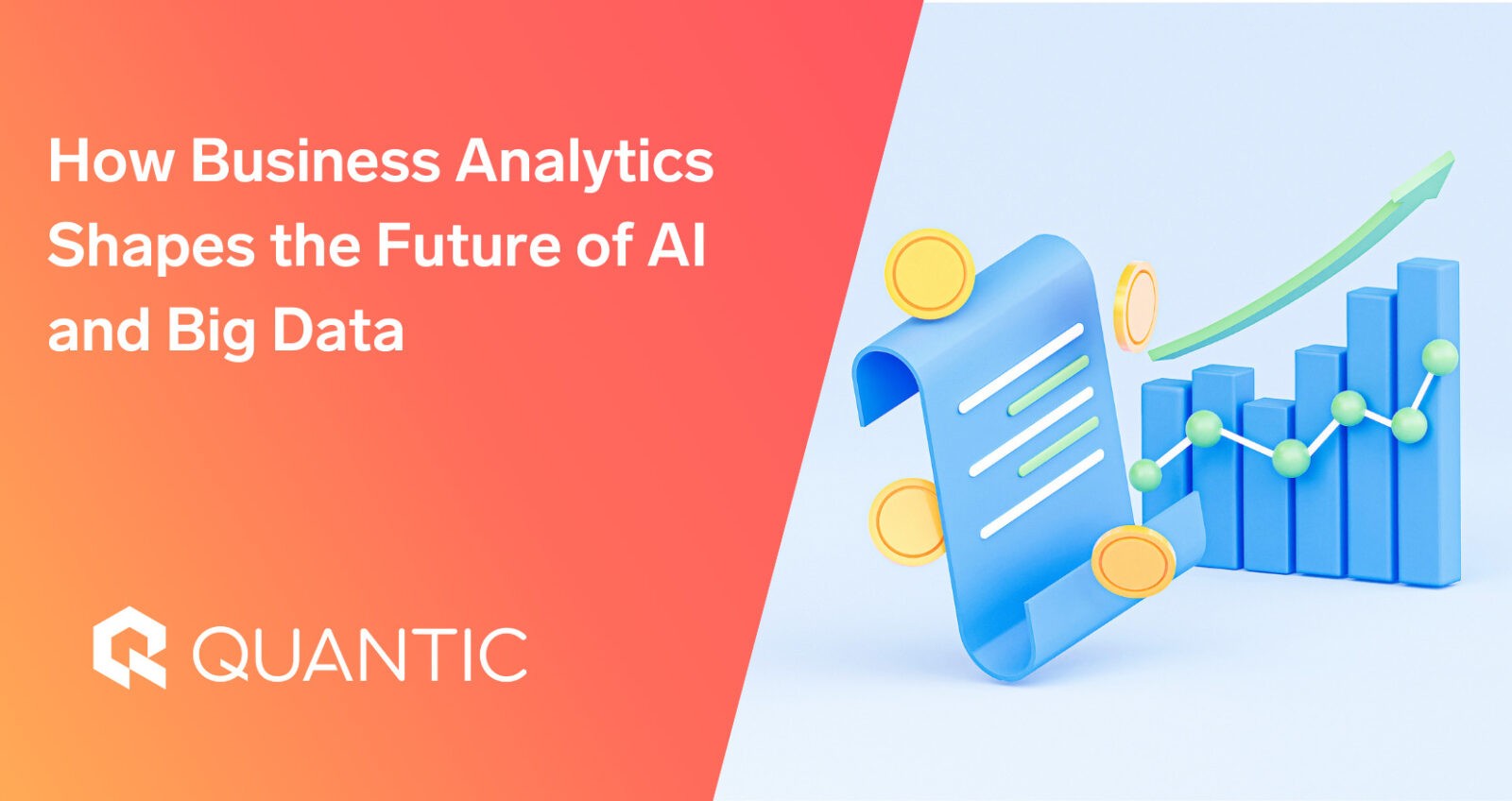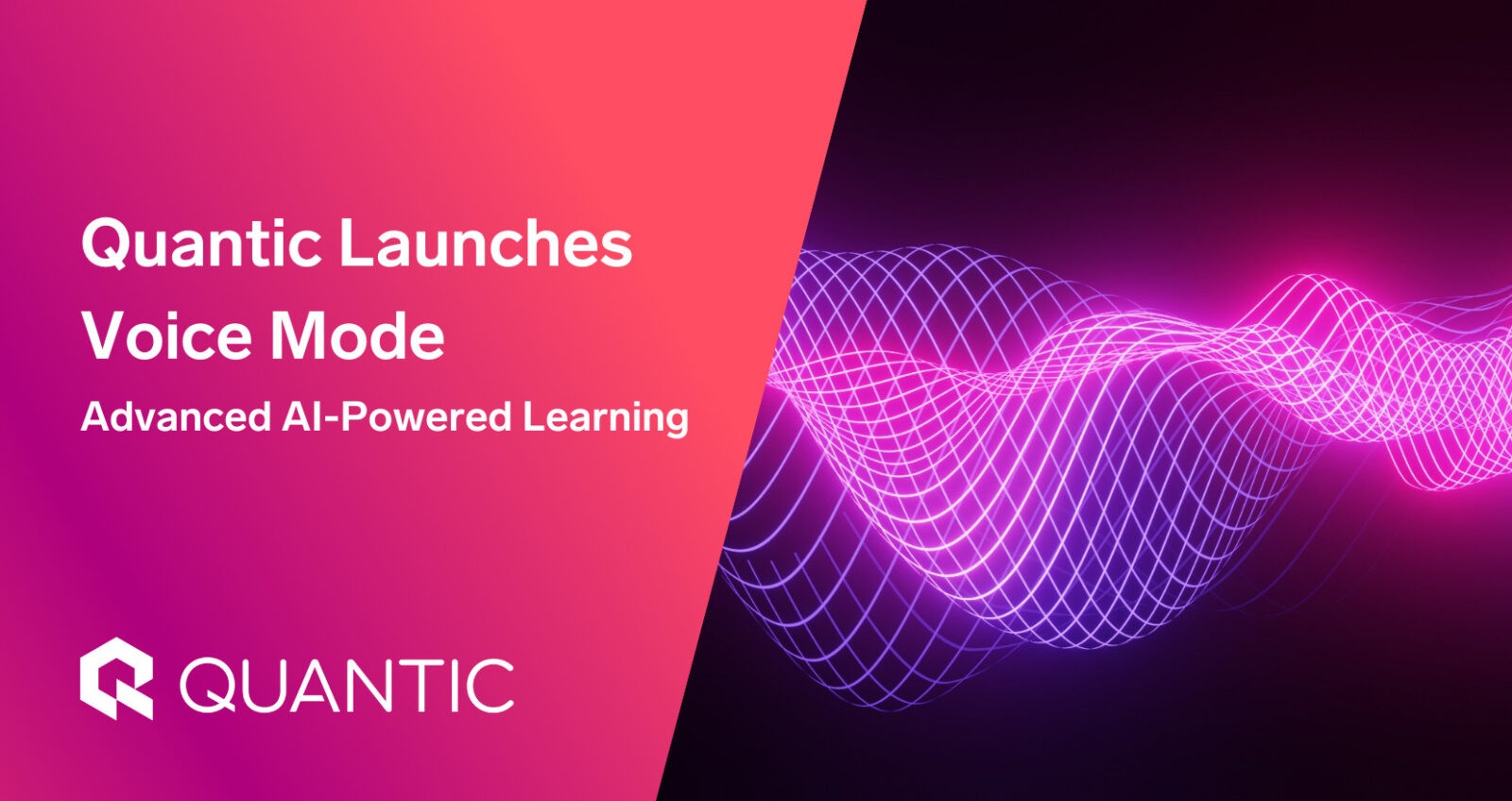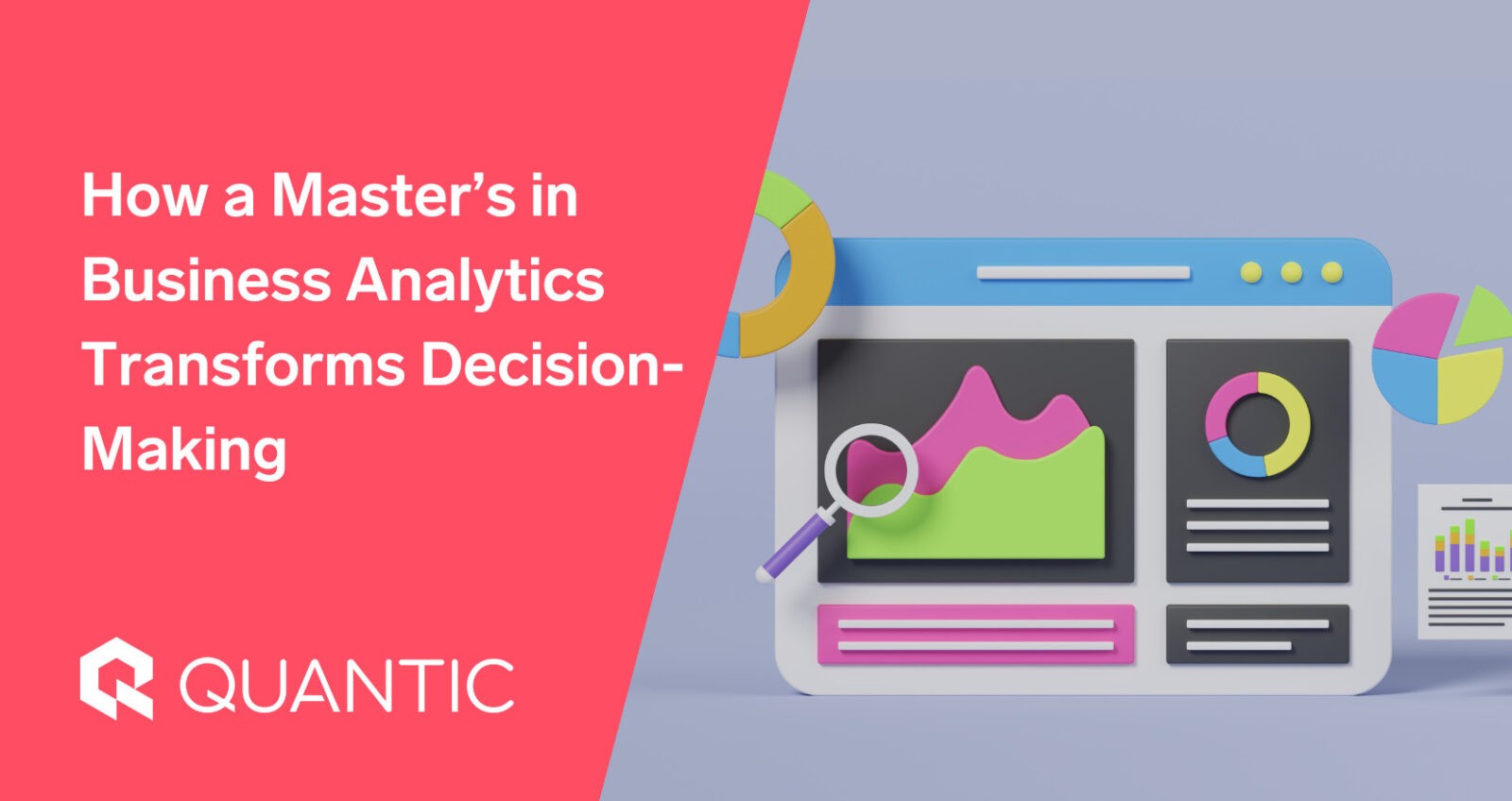ARTIFICIAL INTELLIGENCE
How Business Analytics Shapes the Future of AI and Big Data
We’re living in a time when data is being created at an incredible pace, and businesses are depending on analytics more than ever to turn their data into meaningful insights. By 2025, the global AI market is expected to exceed $243 billion, highlighting how important data has become in driving business success. Data-driven companies are proving to be leaders in their industries—23 times more likely to excel in customer acquisition, 19 times more likely to stay profitable, and nearly 7 times more likely to keep their customers coming back. But what’s the real game-changer that connects raw data to impactful outcomes? The answer is business analytics.
Business analytics (BA) is what ties together the power of AI and big data with smart decision-making. It takes raw numbers and transforms them into stories, trends, and actionable insights that shape the future of industries. In this blog, we’ll explore how business analytics is fueling innovation in AI and big data, the key skills you need to thrive in this field, and how Quantic’s Master of Science in Business Analytics (MSBA) program is uniquely designed to prepare you for success in this ever-changing landscape.
What is Business Analytics and Why Does It Matter?
Business analytics refers to the practice of using data, statistical analysis, and advanced techniques such as machine learning to uncover patterns and insights that drive better decision-making and strategic planning. While traditional business intelligence primarily focuses on reporting historical data, business analytics emphasizes forward-looking approaches, such as predictive and prescriptive analytics, to anticipate trends and shape future strategies.

Given the rapid evolution of the data landscape, businesses can no longer rely solely on intuition or guesswork. Business analytics empowers leaders to make evidence-based decisions that enhance productivity, reduce costs, and uncover new opportunities for growth.
How Business Analytics Drives Success
- Optimized Operations: Predict supply chain disruptions or streamline manufacturing processes to ensure smooth and efficient operations.
- Actionable Insights: Prescriptive analytics provides recommendations, helping businesses allocate resources more effectively and minimize risks.
- Customer Personalization: Leverage behavioral insights to tailor personalized marketing campaigns and improve customer satisfaction, loyalty, and retention.
- Driving Innovation: Use predictive modeling to identify emerging market trends and uncover untapped opportunities for developing new products or services.
For example, companies like Netflix have mastered using AI-driven analytics to recommend personalized content, keeping users engaged and increasing retention. This kind of success is only possible when business analytics bridges technical data insights with strategic decisions.
| Quantic’s MSBA program is designed to equip students with the tools to excel in such scenarios. The curriculum combines technical expertise with strategic leadership, enabling graduates to become the analytical leaders organizations need. |
How Business Analytics Powers AI and Big Data
Business Analytics Fuels AI Innovation
AI depends on data for growth. Without structured, meaningful insights from analytics, AI algorithms cannot deliver accurate results. As a result, business analytics plays a pivotal role in:
- Training AI Models: Identifying relevant data patterns to train machine learning models through predictive analytics.
- Improving Accuracy: Ensuring AI systems adapt and improve over time through continuous analysis.
- Driving Business Value: Aligning AI initiatives with organizational goals to drive business value.
For instance, the integration of AI and business analytics in the healthcare sector has revolutionized patient care. Doctors now diagnose diseases earlier using predictive models driven by analytics, while prescriptive analytics guides treatment options. Therefore, the combination of AI and analytics significantly enhances outcomes.
| Quantic’s MSBA program equips students with tools like machine learning and AI-enhanced analytics, offering a comprehensive understanding of how to leverage these technologies to create real-world business value. |
Big Data and Analytics in Decision-Making
Big data refers to massive volumes of structured and unstructured data generated continuously from various sources, including businesses, social media, IoT devices, and more, often in real-time. However, the true value of big data lies in how it’s analyzed and used to inform decisions. Thus, business analytics enables organizations to:
- Leverage insights from the 3Vs of Big Data: Volume, Velocity, and Variety.
- Predict Trends: Forecast demand or market shifts by analyzing consumer behavior.
- Visualize Data: Present complex insights in an understandable format using platforms like Tableau and Power BI.
For example, Amazon uses big data analytics to optimize its supply chain and predict consumer purchasing patterns. This data-driven approach saves billions of dollars annually and cements Amazon’s competitive edge.
| Quantic’s MSBA program emphasizes hands-on learning with big data tools like Tableau and cloud-based platforms. Graduates leave the program ready to tackle big data challenges in any industry. |
5 Key Skills for Success in Business Analytics, AI, and Big Data
To thrive in the intersection of business analytics, AI, and big data, professionals must possess a blend of technical, analytical, and leadership skills. Specifically, below are the core competencies:

1. Data Analysis and Interpretation
- Why It’s Important: The ability to process and interpret complex datasets is foundational for analytics and AI projects.
- Example: Identifying customer churn patterns to implement data-driven retention strategies.
2. Programming Skills
- Why It’s Important: Knowledge of programming languages like Python, SQL, and R is crucial for tasks such as cleaning data, querying databases, and building machine learning models.
- Example: Writing algorithms to process unstructured data from social media feeds or analyzing customer sentiment.
3. Data Visualization
- Why It’s Important: Clear visuals enable stakeholders to make informed decisions quickly.
- Example: Using Tableau to present quarterly sales trends or Power BI for real-time operational dashboards.
4. Strategic Thinking
- Why It’s Important: Beyond technical expertise, professionals must align analytics with broader business objectives to ensure measurable impact.
- Example: Leading cross-functional teams to implement an AI-driven marketing campaign or using predictive analytics to guide product launches.
5. Communication and Storytelling
- Why It’s Important: Analytics professionals must translate data insights into compelling narratives for non-technical stakeholders.
- Example: Presenting a data-backed pitch to secure funding for a new initiative or explaining machine learning results to senior executives.
| Quantic’s MSBA program is uniquely structured to build these skills through interactive coursework, real-world case studies, and a Capstone Project where students develop scalable analytics solutions for real organizations. |
Careers at the Intersection of Business Analytics, AI, and Big Data
Professionals with expertise in business analytics, AI, and big data are in high demand across industries. Below are some of the top career paths in this dynamic field:
- Data Scientist: Data scientists analyze complex datasets, build predictive models, and uncover insights using machine learning and statistical techniques.
- Business Intelligence (BI) Analyst: BI analysts create dashboards and reports to translate raw data into actionable insights that inform business decisions.
- AI Consultant: AI consultants guide organizations in adopting AI solutions, optimizing processes, and implementing machine learning models.
- Big Data Architect: Big data architects design and maintain systems to handle large-scale data using tools like Hadoop, Spark, and cloud platforms.
- Analytics Manager: Analytics managers lead data teams, set strategies, and ensure analytics initiatives align with business goals.
These roles offer competitive salaries and strong growth potential. The U.S. Bureau of Labor Statistics projects a 31% increase in data-related jobs by 2030, far outpacing most other industries.
| To help students succeed in these rapidly growing fields, the Quantic Career Services team provides high-quality, personalized career coaching and programming. Whether making career advancements, transitioning to new roles, or launching entrepreneurial ventures, Quantic ensures learners are equipped with the tools and strategies needed to thrive. The team fosters career readiness and success through workshops, one-on-one coaching, and networking opportunities with employers, alumni, and peers. The impact of these efforts is clear: 94% of graduates report achieving their career goals, with 52% stepping into bigger roles and receiving a 22% salary increase within just six months of graduation. |
Quantic’s Master of Science in Business Analytics (MSBA) Program: The Best Fit for Aspiring Business Analytics Professionals
Quantic’s MSBA curriculum is designed to provide a well-rounded education, combining technical expertise with strategic business acumen to prepare students for the complexities of data-driven decision-making. The program emphasizes:
- Technical Proficiency: Courses such as Machine Learning, AI-Enhanced Analytics, and Cloud-Based Big Data equip students with the tools to analyze and process large datasets effectively.
- Strategic Insight: Topics like Strategic Leadership and Data-Driven Decision-Making prepare students to align technical solutions with organizational goals and make high-impact business decisions.
- Hands-On Application: The program culminates in a Capstone Project, blending technical skills and strategic thinking to solve real-world business challenges.
Quantic’s MSBA program stands out due to its innovative approach to education and unparalleled value. Here’s what makes it unique:
- Mobile-First. AI-Driven: Learn anytime, anywhere, with our award-winning, interactive core curriculum. Then collaborate with classmates on specializations and group projects online or in-person.
- Cutting-Edge Curriculum: Courses include Machine Learning, Data Visualization, and Cloud-Based Big Data. A Capstone Project allows students to apply their knowledge to real-world challenges.
- Meaningful Connections: Connect with other learners through our international network. Meet face-to-face at global conferences and regional meet-ups.
- Radically Affordable: With an innovative tuition model, it’s just $950 per month for the 13-month degree. The program is often partially or fully funded by company reimbursement and scholarships.
Ultimately, business analytics is revolutionizing how organizations leverage AI and big data to drive growth, innovation, and strategic decision-making. As industries evolve, the demand for skilled professionals in this field will only continue to grow.
Quantic’s Master of Science in Business Analytics program offers the perfect blend of technical expertise, strategic insight, and networking opportunities to empower the next generation of analytical leaders. Are you ready to take the next step in your career? Explore Quantic’s MSBA program today and transform your future in business analytics.
Discover why our students love us and why we’re trusted by top employers around the world by reading Quantic reviews here.
Related articles:



